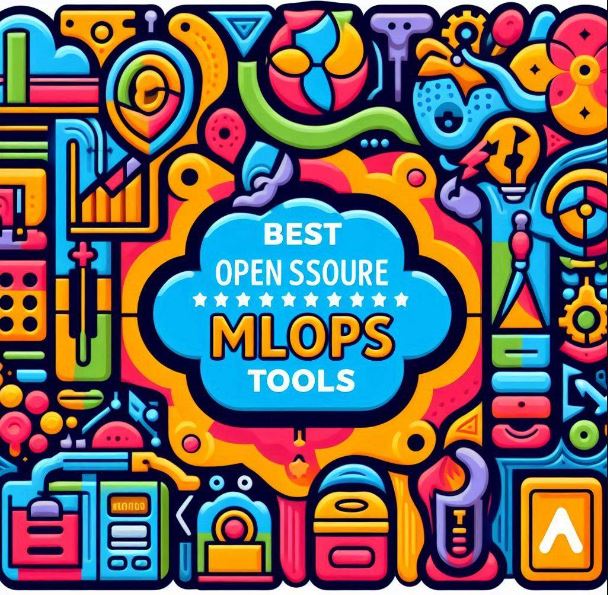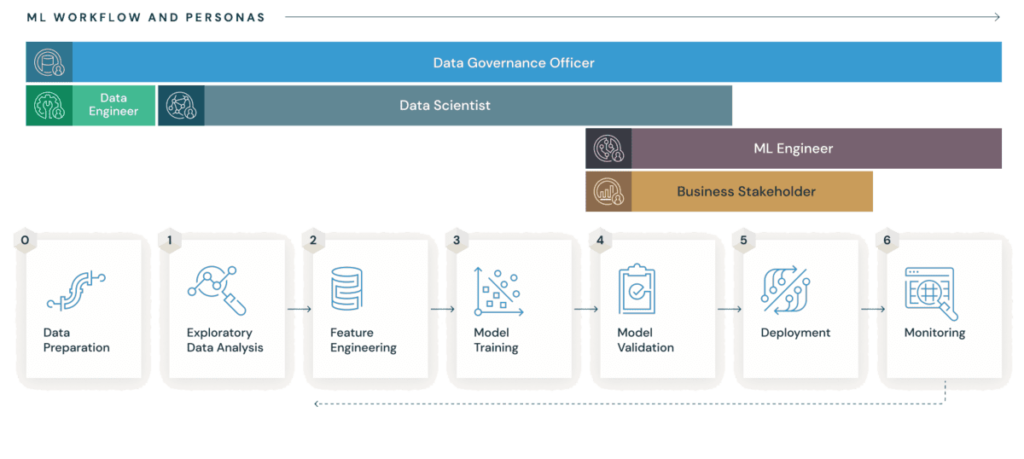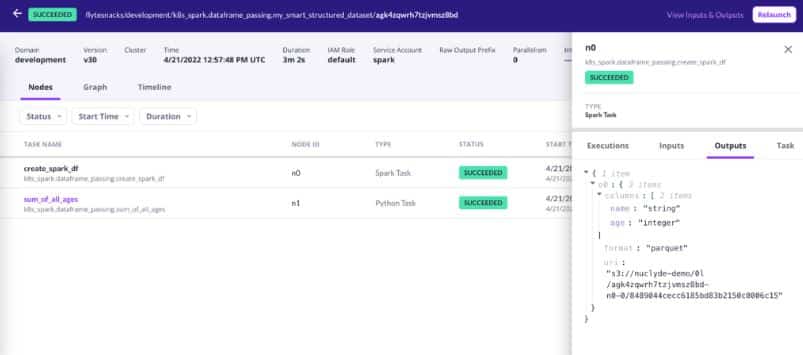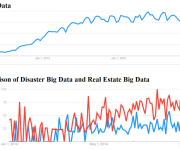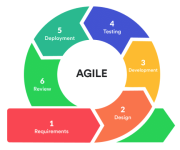Best End-to-End Open Source MLOps: Platforms, Frameworks and Tools
You don’t need to invest heavily in MLOps tools to integrate the benefits of DevOps into your machine learning projects. There are many open-source tools available that can help you achieve this. These tools are particularly valuable when you’re tackling unique challenges and need a supportive community. However, there are also several advantages to using open-source machine learning tools.
Open-source tools offer greater privacy and control over your data and models. However, you will need to manage, deploy, and maintain these tools yourself, which may require additional personnel. Additionally, you will be responsible for security and handling any service outages.
As machine learning (ML) continues to evolve, managing ML models efficiently has become increasingly important. MLOps, a set of practices aimed at automating and streamlining the deployment, monitoring, and management of ML models, is crucial for production-grade AI applications. Leveraging open-source MLOps tools can significantly enhance this process, providing flexibility, scalability, and cost-effectiveness. Here, we explore some of the leading open-source MLOps platforms, frameworks, and tools that are empowering developers and data scientists worldwide.
Full-fledged MLOps open source platforms:
1. Kubeflow
Kubeflow is an open-source platform designed to make ML model deployment on Kubernetes simple, portable, and scalable. It provides a comprehensive suite of tools for model training, serving, and monitoring, integrated into a single cohesive framework.
Key Features:
- Kubernetes-native infrastructure
- End-to-end ML pipelines
- Model serving with KFServing
- Notebook support for interactive development
2. MLflow
Developed by Databricks, MLflow is an open-source platform that manages the ML lifecycle, including experimentation, reproducibility, and deployment. It’s designed to work with any ML library, algorithm, and deployment tool.
Key Features:
- Tracking experiments to record and compare parameters and results
- Packaging ML code in a reproducible format
- Managing and deploying models from various ML libraries
- Model registry for version control and lifecycle management
3. Metaflow
Originally developed by Netflix, Metaflow is a human-centric framework for data science. It makes it easy to build and manage real-life data science projects by focusing on data pipeline automation and scalability.
Key Features:
- Seamless scaling from laptops to the cloud
- Versioned data and code
- Integration with AWS services
- Python-based API for intuitive pipeline design
4. Flyte
Flyte is a Kubernetes-native workflow automation platform for complex, mission-critical data and ML workflows. It allows users to build, monitor, and manage end-to-end workflows with high reliability and scalability.
Key Features:
- Strong typing and interface contracts
- Native support for Python and other languages
- Scalable execution on Kubernetes
- Built-in data catalog and lineage tracking
5. MLReef
MLReef is an end-to-end collaboration platform for ML development. It focuses on enabling reproducibility, collaborative development, and deployment of ML models.
Key Features:
- Integrated development environment for data scientists
- Reproducible ML pipelines
- Collaboration features for team-based development
- Automated deployment options
6. Seldon Core
Seldon Core is an open-source platform that helps deploy, scale, and manage thousands of ML models on Kubernetes. It’s designed to be language-agnostic, supporting models from any ML framework.
Key Features:
- Kubernetes-native model deployment
- Scalable inference graphs
- Advanced monitoring and metrics
- Multi-framework support (TensorFlow, PyTorch, etc.)
7. Sematic
Sematic is an open-source tool that simplifies building and maintaining ML pipelines. It’s designed for reliability, allowing developers to focus on their ML models rather than the infrastructure.
Key Features:
- Pipeline abstraction for complex workflows
- Reproducibility and version control
- Easy integration with existing ML frameworks
- Monitoring and logging capabilities
Data-processing MLOps open source platform:
8. Apache Airflow
Apache Airflow is a platform to programmatically author, schedule, and monitor workflows. It’s widely used for orchestrating complex ML workflows and data pipelines.
Key Features:
- Dynamic pipeline generation using Python
- Robust scheduling and monitoring
- Integration with a variety of data sources and ML frameworks
- Extensible through a rich ecosystem of plugins
Monitoring MLOps open source platform
9. EvidentlyAI
EvidentlyAI is an open-source tool that simplifies ML model monitoring. It helps detect and diagnose model performance issues and data drift over time.
Key Features:
- Interactive visual reports for model evaluation
- Monitoring for data and concept drift
- Real-time performance tracking
- Integration with popular ML frameworks
Workflow open source MLOps frameworks
10. Kedro
Kedro is an open-source Python framework for creating reproducible, maintainable, and modular data science code. It’s designed to standardize the development workflow for data scientists.
Key Features:
- Pipeline abstraction for modular code
- Data catalog for data versioning and management
- Seamless integration with ML frameworks
- Best practices for software engineering in data science
11. ZenML
ZenML is a MLOps framework to create reproducible ML pipelines. It integrates with various ML tools and frameworks, providing a unified interface for pipeline creation and management.
Key Features:
- Extensible and modular pipeline design
- Integration with popular ML tools and frameworks
- Versioning and reproducibility
- Easy deployment to cloud environments
Deployment and serving open source MLOps framework
12. BentoML
BentoML is an open-source platform for high-performance ML model serving. It provides tools to package and deploy ML models as RESTful APIs.
Key Features:
- Framework-agnostic model packaging
- Automated API generation
- Scalable deployment with Docker and Kubernetes
- Monitoring and logging for deployed models
Workflow orchestration open source MLOps framework
13. Argo Workflow
Argo Workflows is an open-source container-native workflow engine for orchestrating parallel jobs on Kubernetes. It’s ideal for running complex ML workflows and CI/CD pipelines.
Key Features:
- Kubernetes-native architecture
- DAG-based workflow management
- Scalability for large-scale ML pipelines
- Integration with CI/CD tools
MLOps open source tools:
Development and deployment open source ML tools:
14. MLRun
MLRun is an open-source framework that simplifies the development, deployment, and management of ML models in production. It integrates seamlessly with popular ML frameworks and provides robust orchestration for end-to-end ML pipelines.
Key Features:
- Real-time and batch processing
- Integrated data and model versioning
- Automated deployment and monitoring
- Support for serverless functions and Kubernetes
15. CML (Continuous Machine Learning)
CML is an open-source tool for CI/CD in machine learning. Developed by the team at DVC, CML allows data scientists to automate and manage the lifecycle of ML models using Git.
Key Features:
- Git-based workflow integration
- Automated training and evaluation
- Model monitoring and reporting
- Seamless integration with cloud services
AutoML open source tools
16. AutoKeras
AutoKeras is an open-source AutoML library developed by DATA Lab at Texas A&M University. It provides an easy-to-use interface for automatically finding the best neural network architecture for your data.
Key Features:
- Automated hyperparameter tuning
- Model selection and optimization
- Simple and intuitive API
- Integration with TensorFlow and Keras
17. H2O AutoML
H2O AutoML is a popular open-source platform that automates the process of training and tuning a large selection of machine learning models. It provides an efficient and easy way to deploy models in production.
Key Features:
- Automated model training and hyperparameter tuning
- Scalable and distributed ML
- Support for various ML algorithms
- Integration with popular data science tools
18. EvalML
EvalML is an open-source AutoML library that focuses on evaluating and comparing machine learning models. It aims to help users build, optimize, and interpret ML models with ease.
Key Features:
- Automated model selection and tuning
- Customizable evaluation metrics
- Model interpretability tools
- Integration with popular ML libraries
19. Neural Network Intelligence (NNI)
NNI is an open-source toolkit developed by Microsoft for automated machine learning (AutoML) and hyperparameter optimization. It supports various ML frameworks and allows for efficient experimentation.
Key Features:
- Automated hyperparameter tuning
- Support for multiple ML frameworks
- Easy experiment management
- Extensible architecture
Data validation open source ML tools:
20. Hadoop
Hadoop is an open-source framework that allows for the distributed processing of large data sets across clusters of computers. It’s essential for big data analytics and is widely used in ML pipelines.
Key Features:
- Distributed storage and processing
- Fault tolerance and high availability
- Support for various data formats
- Integration with ML and big data tools
21. Apache Spark
Apache Spark is an open-source unified analytics engine for big data processing. It provides an interface for programming entire clusters with implicit data parallelism and fault tolerance.
Key Features:
- Distributed data processing
- Real-time stream processing
- Support for MLlib (Spark’s machine learning library)
- Integration with Hadoop and other big data tools
22. Great Expectations
Great Expectations is an open-source tool for data quality and validation. It helps ensure that data meets the expectations of your ML models and data pipelines.
Key Features:
- Data validation and profiling
- Automated data documentation
- Integration with ETL and ML workflows
- Customizable expectations
23. TensorFlow Extended (TFX)
TensorFlow Extended (TFX) is an end-to-end platform for deploying production ML pipelines. It enables scalable, high-performance ML and allows for seamless model deployment and monitoring.
Key Features:
- End-to-end ML pipeline orchestration
- Data validation and transformation
- Model analysis and validation
- Scalable serving infrastructure
Data exploration open source ML tools:
24. Jupyter Notebook
Jupyter Notebook is an open-source web application that allows you to create and share documents containing live code, equations, visualizations, and narrative text. It is widely used in data science and ML.
Key Features:
- Interactive computing environment
- Support for multiple programming languages
- Integration with various ML frameworks
- Rich media output for visualizations
Data version control open source ML tools
25. Data Version Control (DVC)
DVC is an open-source tool for version control of data, models, and machine learning pipelines. It extends Git’s capabilities to handle large datasets and ML models efficiently.
Key Features:
- Data and model versioning
- Reproducible pipelines
- Integration with Git
- Cloud storage support
26. Pachyderm
Pachyderm is an open-source data versioning and pipeline tool that combines version control with scalable data processing. It is designed to simplify the development and deployment of ML workflows.
Key Features:
- Versioned data repositories
- Scalable and reproducible data pipelines
- Integration with Kubernetes
- Support for various ML frameworks
Data inspection open source ML tools:
27. Alibi Detect
Alibi Detect is an open-source Python library for outlier, adversarial, and drift detection. It is designed to help monitor ML models in production and ensure their reliability.
Key Features:
- Outlier and anomaly detection
- Drift detection for data and models
- Easy integration with ML pipelines
- Customizable detection algorithms
28. Frouros
Frouros is an open-source library for drift detection in machine learning. It helps monitor and detect shifts in data distributions that can affect model performance.
Key Features:
- Data drift detection
- Statistical and distance-based methods
- Integration with existing ML workflows
- Customizable and extensible
Model serving open source ML tool:
29. StreamLit
StreamLit is an open-source app framework for machine learning and data science. It allows you to create beautiful, interactive web applications quickly and easily.
Key Features:
- Interactive and real-time web apps
- Python-based API
- Integration with ML frameworks
- Easy deployment
30. TorchServe
TorchServe is an open-source model serving framework for PyTorch. It provides tools for deploying and scaling PyTorch models in production environments.
Key Features:
- Scalable model serving
- Support for multiple model formats
- Monitoring and logging
- Integration with Kubernetes
Testing and maintenance open source ML tools:
31. Prometheus
Prometheus is an open-source monitoring and alerting toolkit. It is widely used for collecting and querying metrics from ML models and infrastructure.
Key Features:
- Time-series data collection
- Powerful query language (PromQL)
- Integration with various data sources
- Alerting and visualization
32. ModsysML
ModsysML is an open-source platform for modular and scalable machine learning. It provides tools for building, deploying, and managing ML models in production.
Key Features:
- Modular architecture
- Scalable deployment
- Support for multiple ML frameworks
- Monitoring and management tools
33. Deepchecks
Deepchecks is an open-source tool for testing and validating machine learning models and data. It helps ensure the quality and reliability of ML workflows.
Key Features:
- Data validation and testing
- Model performance evaluation
- Integration with popular ML frameworks
- Customizable checks and reports
Experiment tracking open source ML tools:
34. Aim
Aim is an open-source experiment tracking tool for ML teams. It helps track and visualize the performance of ML experiments and models.
Key Features:
- Experiment tracking
- Visual comparison of model runs
- Integration with ML frameworks
- Collaborative features
35. Guild AI
Guild AI is an open-source tool for experiment tracking, optimization, and deployment in machine learning. It helps manage and monitor ML workflows effectively.
Key Features:
- Experiment tracking and comparison
- Hyperparameter optimization
- Model deployment
- Integration with CI/CD tools
Model interpretability open source ML tools:
36: Alibi Explain
Alibi Explain is an open-source library for machine learning model interpretability. It provides tools for explaining and understanding the predictions of ML models.
Key Features:
- Model interpretability and explanation
- Support for various explanation methods
- Integration with popular ML frameworks
- Customizable and extensible
Conclusion
Open-source MLOps tools provide a robust and flexible foundation for managing the entire machine learning lifecycle. From data versioning and model deployment to monitoring and interpretability, these tools empower developers and data scientists to build, deploy, and maintain high-quality ML models efficiently. By leveraging the strengths of these diverse tools, you can enhance your ML workflows and drive innovation in your AI projects.
FAQs:
1. What is MLOps and why is it important for machine learning projects?
MLOps, or Machine Learning Operations, is a set of practices that aims to deploy and maintain machine learning models in production reliably and efficiently. It combines elements of machine learning, DevOps, and data engineering to streamline the end-to-end ML lifecycle, including model development, deployment, monitoring, and maintenance. MLOps is important because it helps ensure that ML models are reproducible, scalable, and maintainable, which is crucial for achieving consistent and high-quality results in real-world applications.
2. How do open-source MLOps tools compare to commercial solutions?
Open-source MLOps tools offer several advantages over commercial solutions, including cost-effectiveness, flexibility, and community support. They allow for greater customization to fit specific project requirements and often have a faster innovation cycle due to community contributions. However, they may require more hands-on management and maintenance compared to commercial solutions, which often come with dedicated support and easier integration with enterprise systems. The choice between open-source and commercial tools depends on the specific needs, budget, and resources of an organization.
3. What are some popular open-source MLOps platforms and frameworks?
Some popular open-source MLOps platforms and frameworks include:
- Kubeflow: A platform for deploying, monitoring, and managing ML models on Kubernetes.
- MLflow: A framework for managing the ML lifecycle, including experimentation, reproducibility, and deployment.
- Metaflow: Developed by Netflix, it simplifies the process of building and managing real-life data science projects.
- Flyte: A Kubernetes-native workflow automation platform for ML workflows.
- Seldon Core: A tool for deploying, scaling, and managing thousands of ML models on Kubernetes.
4. What are some tools for automating machine learning (AutoML) in open-source MLOps?
Several open-source tools focus on automating the machine learning process (AutoML), making it easier to build and optimize ML models without extensive manual tuning. These tools include:
- AutoKeras: An AutoML library for Keras, which automates the process of finding the best model architecture.
- H2O AutoML: A platform for automatic model training and tuning, offering a range of ML algorithms.
- EvalML: An AutoML library that focuses on evaluating and comparing ML models to find the best fit for your data.
- Neural Network Intelligence (NNI): A toolkit for automated hyperparameter tuning and neural architecture search.
5. How can open-source MLOps tools help with model monitoring and maintenance?
Open-source MLOps tools provide several features to help with the monitoring and maintenance of ML models in production, ensuring they perform as expected and remain reliable over time. Tools like EvidentlyAI and Great Expectations offer capabilities for monitoring data quality and detecting data drift. Prometheus provides robust monitoring and alerting for ML infrastructure. Seldon Core and TorchServe enable scalable model serving with built-in monitoring and logging. These tools help identify and address issues such as model degradation, performance anomalies, and infrastructure problems, ensuring that models continue to deliver accurate and reliable predictions.

